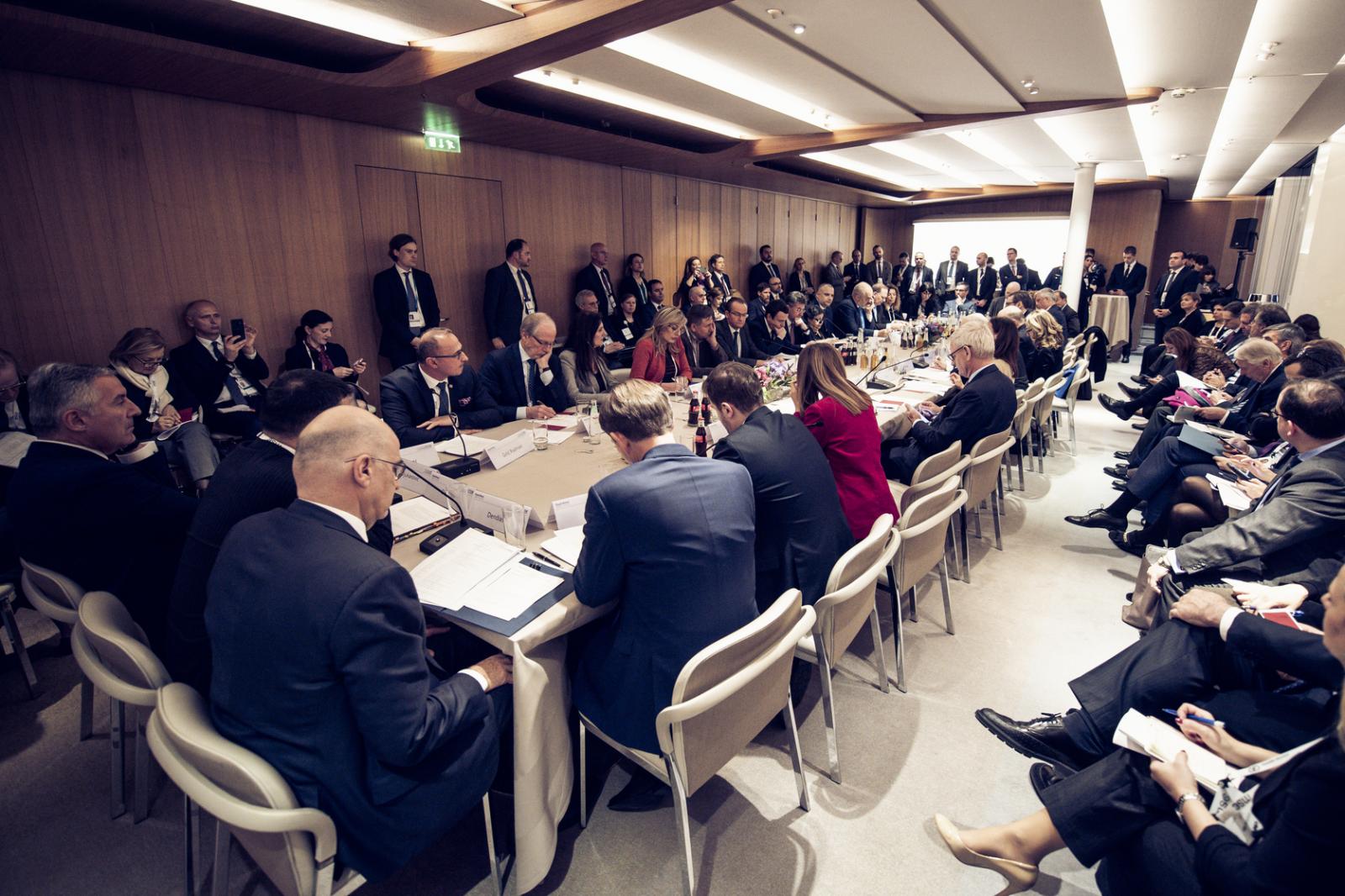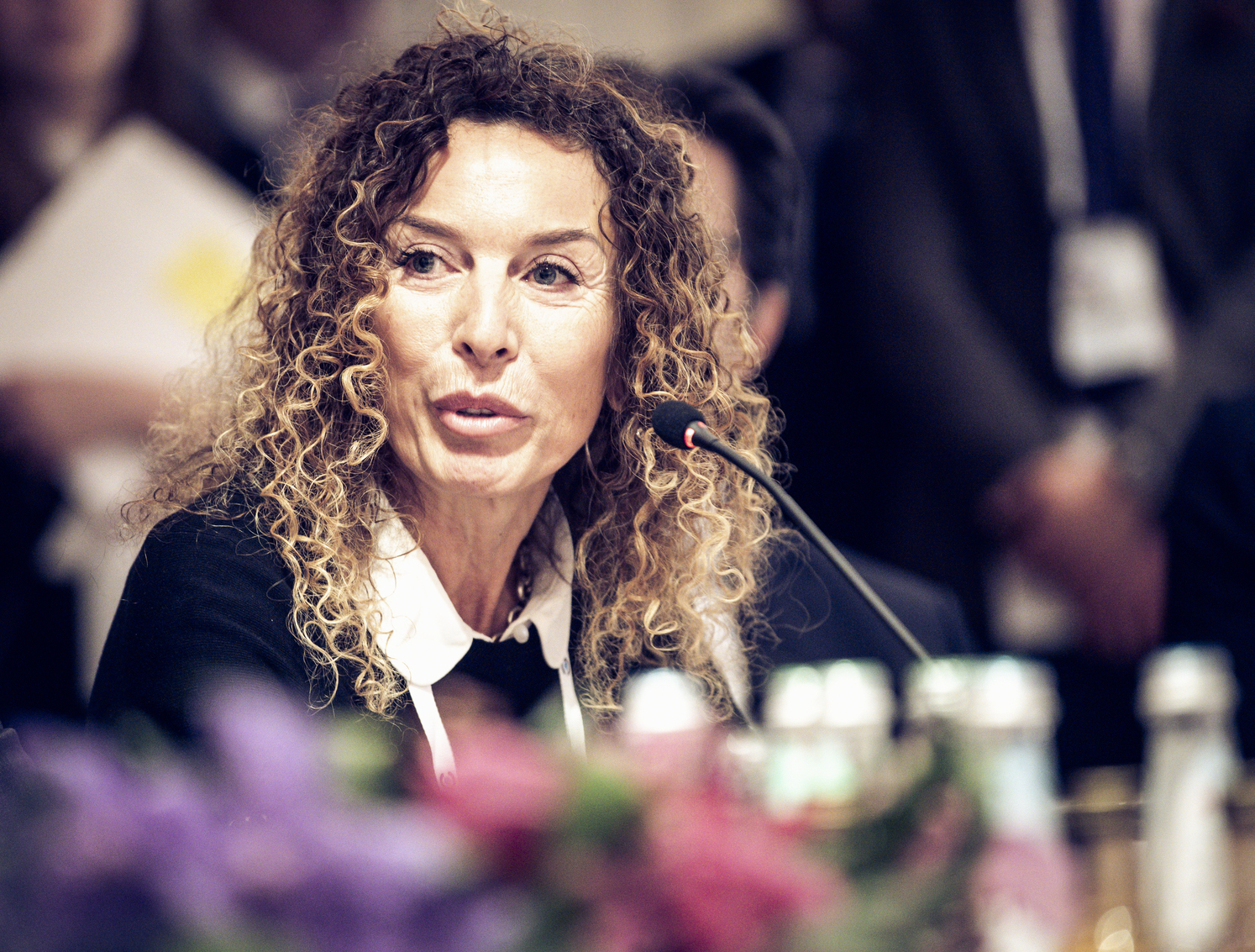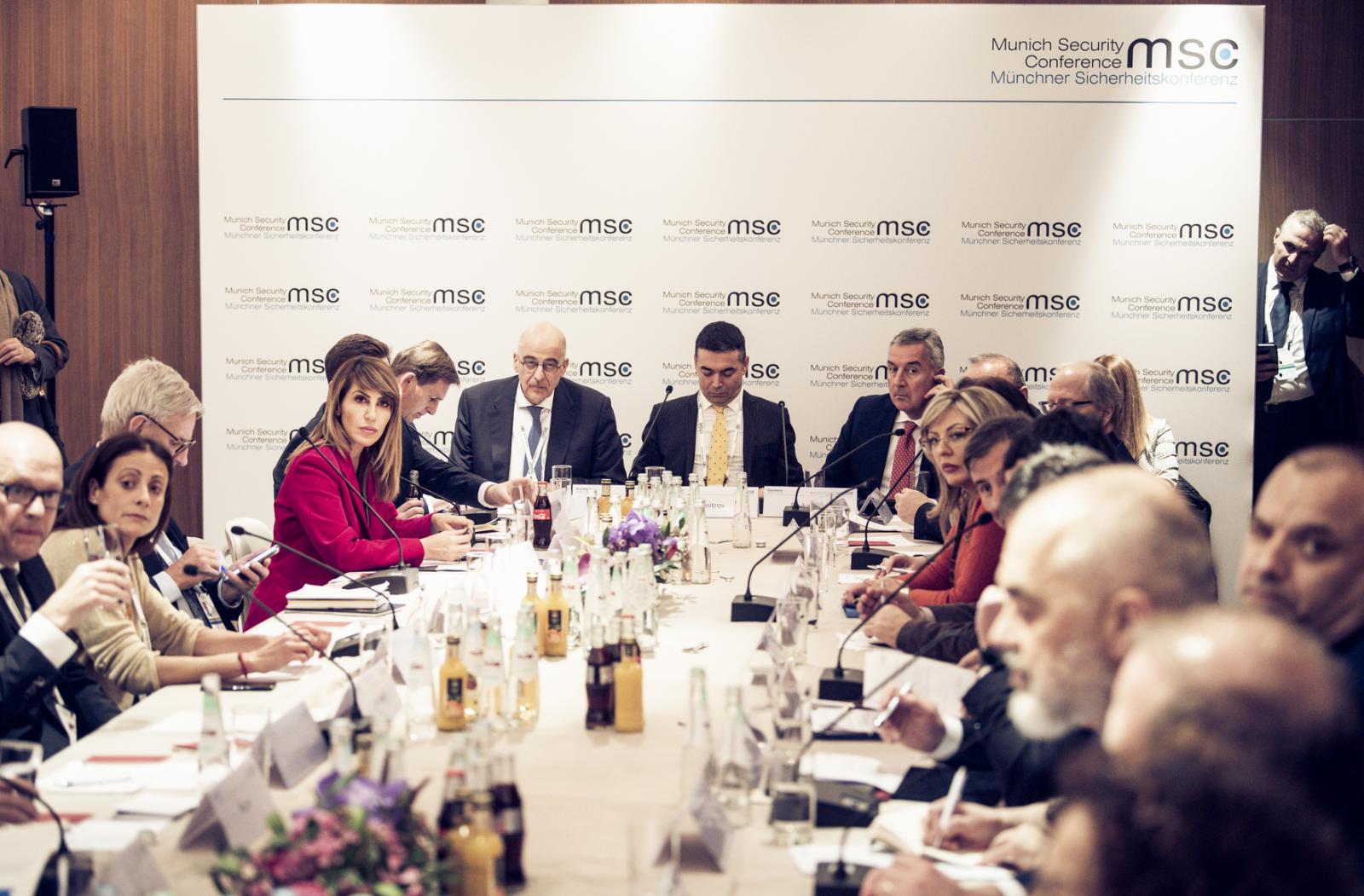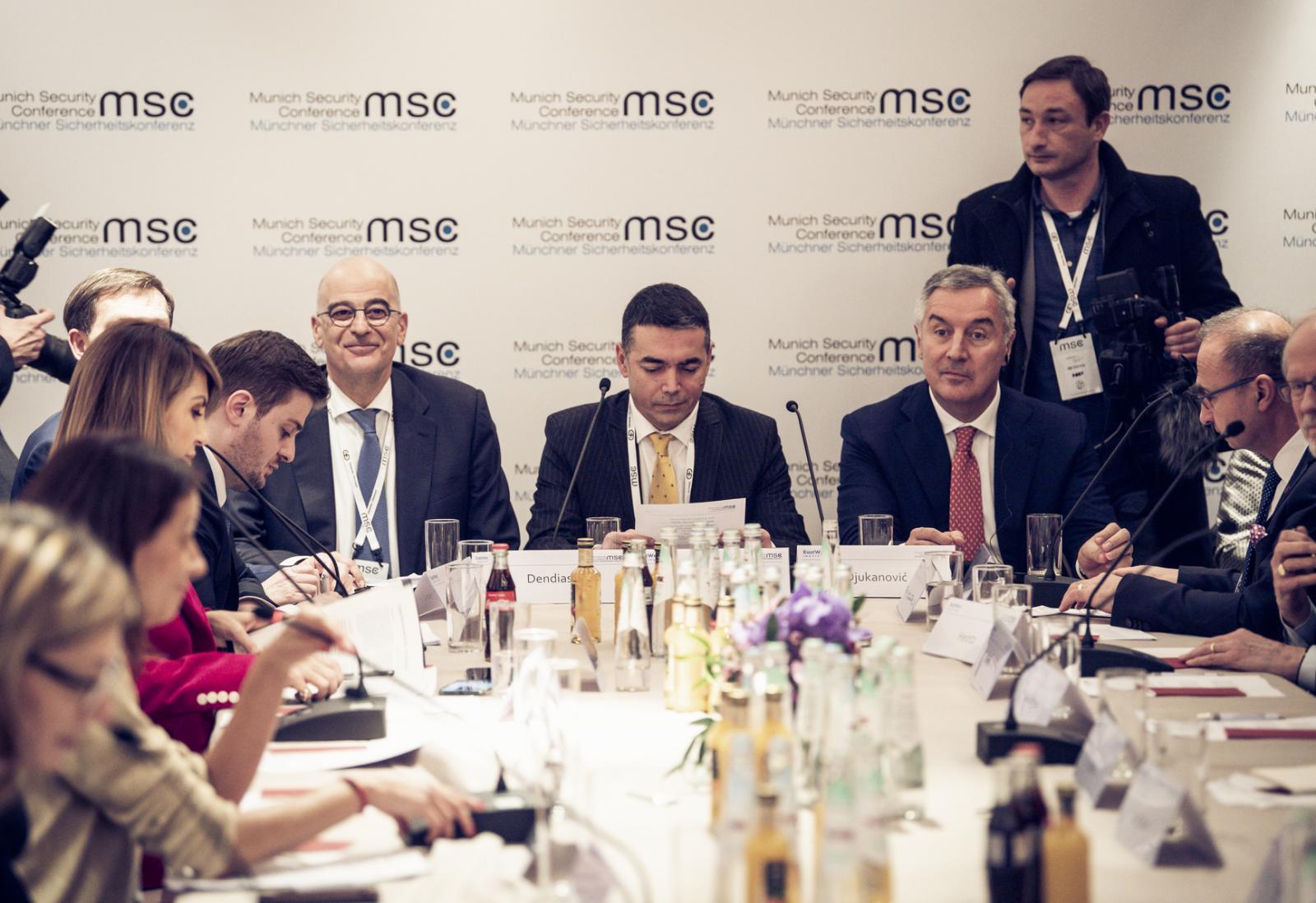Brussels MENA Briefing: Jordanian Foreign Policy in Light of Regional Geopolitical Shifts
On September 8, the EastWest Institute (EWI) and the Center for Applied Research in Partnership with the Orient (CARPO) hosted their sixth “Brussels MENA Briefing”—a series of after-work briefings on the Middle East and North Africa (MENA) region—on the topic of “Jordanian Foreign Policy in Light of Regional Geopolitical Shifts.”
Speakers included Dr. Amer Al Sabaileh, professor at the University of Jordan and well-known security and political analyst, and Dr. Edmund Ratka, designated head of the Amman Office of the Konrad Adenauer Foundation. The discussion was moderated by Wael Abdul-Shafi, EWI MENA program associate.
After several years of crippling economic challenges, recently exacerbated by the COVID-19 pandemic, Jordan has become more dependent on foreign aid, with the European Union (EU) as one of its most important donors. Meanwhile, Jordan’s traditional regional alliances are changing dramatically, shifting the political environment’s perception of threat towards both its neighbors as well as international partners. Within this framework, the briefing focussed on Jordan’s role in the region and how this reflects on its relationship with the EU.
The discussion began with participants emphasizing that Jordan—due to its relative stability, strategic geopolitical position and moderat politics—has often been seen by the international community as a mediary for furthering relations and cooperation in the Middle East. To this end, one speaker aptly asserted that as a small country, Jordan's strategic role lies in “power of policy rather than in policy of power”; thus, Jordan has the potential to become a hub for regional dialogue. The speakers remarked that the EU, as well as individual European countries, have long considered Jordan a key partner in the Middle East.
One speaker pointed out that because the EU prioritizes Israel’s security and is aware that there cannot be a solution to the Israeli-Palestinian conflict without Jordan, it continues to invest in Jordan’s stability. The discussants also emphasized that the EU considers Jordan an important partner, not only when it comes to cooperation on key issues such as the refugee crisis and military operations against ISIS, but also in Amman’s role as a focal point for international organizations working on the Middle East at large.
However, one speaker observed that as regional alliances are changing, Jordan is presented with a challenging moment in its foreign policy. With a direct connection to the Gulf and Israel, and the growing potential for Iraq to emerge as a hub for regional connectivity and cooperation, Jordan risks exclusion from international efforts, including on the Palestinian issue. Augmenting this point, one speaker raised Jordan’s lack of balanced relations with its direct neighbors, specifically conflict-ridden Syria, as well as Iraq. Another participant noted that in the past several years, Jordan’s relations with Israel have deteriorated.
In light of these developments, one discussant remarked that Jordan should reshape its foreign policy by redefining its relationship with its direct neighbors, such as Syria, Iraq and Israel, as well as the wider region, including a rapprochement with Gulf countries and renewed relations with Iran. As one speaker elaborated, having a Hashemite King who is neither Shiite nor Sunni can be an asset in developing relations with Iran.
Concrete examples of cross-border cooperation mentioned during the briefing included Jordan’s assistance in developing regional railways, energy projects and ports. Jordan can also reactivate the Port of Aqaba to support Saudi Arabia’s plans to build NEOM, a cross-border city in the Tabuk Province that would combine smart city technologies and tourism. Furthermore, Jordan could also provide aid to its neighbors in coping with the COVID-19 pandemic. As one speaker noted, this would further secure continued EU interest in and financial support of Jordan.
The discussants emphasized that the EU should not take Jordan’s stability for granted, given the multiplicity of conflicts in Jordan’s immediate neighborhood. The speakers suggested that the EU should engage Jordan as a partner in its regional diplomatic efforts. Furthermore, one speaker pointed to the role the EU could play in deterring and discouraging external actors from pushing Jordan to take sides in ongoing regional conflicts. Jordan truly has the potential to connect the entire region. As the briefing concluded, it is in the strategic interest of the EU to assist Jordan in becoming a “kitchen of solutions for the conflicts of the region.”
About the Brussels MENA Briefings
The Brussels MENA Briefings are in-depth round-table discussions on topics of current significance in the MENA region hosted by EWI and CARPO bimonthly, the first week of every second month. As in-person-briefings are impossible due to COVID-19, EWI and CARPO have temporarily turned this series into a monthly webinar. Please note that attendance is by invitation only.
Should you be interested in being considered for the invitation list, kindly send an email to Desirée Custers mentioning your name, affiliation and geographical or thematic area of interest and expertise in the Middle East.
Dates for upcoming Brussels MENA Briefings:
Tuesday October 6, 2020: “The Economic Dimensions of the Conflict in Yemen”
Links to Reports of Previous Briefings:
How to Rescue Sudan’s Transition Process?
A New Iraqi Government in Place: Challenges and Opportunities for Iraq in its Neighborhood
The Status Quo of the Libyan Conflict: Is the Berlin Process Obsolete?
Post-Sultan Qaboos Oman: Transition Opportunities and Challenges




